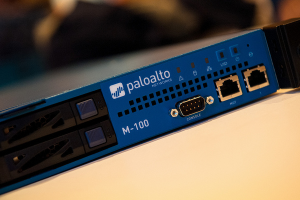Disruptive Tech: It’s Not Enough to See the Trainwreck Coming
People like to talk about disruption but sometimes some people misunderstand the power of disruptive technologies.
I’ve had companies tell me: "Yes, we know we are in danger of disruption but we see it, we can adapt, we can change and take advantage of it."
![]() Good luck. Even when you can see the train wreck ahead. You will likely slam right into it. Disruptive technologies disrupt. Technologies are not called "disruptive" just for the sake of it.
Good luck. Even when you can see the train wreck ahead. You will likely slam right into it. Disruptive technologies disrupt. Technologies are not called "disruptive" just for the sake of it.
Niki Scevak, a serial entrepreneur, writing over at Bronte Media, has a nice analysis of AOL versus Yahoo. He says that AOL, under Tim Armstrong and his team, has a more realistic understanding of the advertising markets, and where things are headed.
Carol Bartz, who I am sure is an excellent manager of large companies, seems lost. SeeArrington’s article on a speech she gave recently where she said: “she’s counting on an improvement in the economy to drive Yahoo growth”.
Well, let me save you some time Carol: Stop counting. The economy won’t help you…
The second thing that enrages me about that statement is that it’s completely out of her control. And what track record does Bartz have in forecasting economic indicators? Where are the statements related to things under her control?
Mr Scevak says he will short YHOO and buy AOL.
My main reason for thinking this is that AOL has a management team that is in tune with the reality of the Internet. Yahoo has a management team still grasping with the basics of advertising and that’s not mentioning the basics of online advertising.
A better strategy might be to short both because there is a huge disruptive wave moving through the media industry. The disruption is affecting every media business, old and new(er).
AOL might have a better view into the disruption but that’s no guarantee of success. Just because you can see the train wreck ahead, doesn’t mean you can avoid slamming straight into it.
![]() Look at what happened with the microcomputer/PC technologies. Over a period of about a decade, that basket of technologies disrupted hundreds, if not thousands of companies, in the computer industry. IBM barely survived. It had to reinvent itself as a computer services company.
Look at what happened with the microcomputer/PC technologies. Over a period of about a decade, that basket of technologies disrupted hundreds, if not thousands of companies, in the computer industry. IBM barely survived. It had to reinvent itself as a computer services company.
So many companies, DEC, etc, saw the disruption ahead. But they couldn’t change fast enough, they couldn’t downsize fast enough, they slammed straight into the train wreck. Some did make it through to the other side but many didn’t. Disruptive technologies disrupt.
Even if you see things coming, as the newspaper companies now do, there’s sometimes little they can do about it. The Internet is a hugely disruptive media technology and that’s where we see the disruption the most.
Newspaper, and other media companies, have to act a lot faster than they are. Many won’t make it through to the other side no matter what they do. Disruptive technologies disrupt.
[Editor’s Note: Tom cross-posted this on Silicon Valley Watcher. Interested in getting more advice like this, but tailored for your organization? Try out his media and business strategy consultancy services. You can directly message Tom by joining SiliconANGLE (or by emailing him: tom@foremski.com). –mrh]
A message from John Furrier, co-founder of SiliconANGLE:
Your vote of support is important to us and it helps us keep the content FREE.
One click below supports our mission to provide free, deep, and relevant content.
Join our community on YouTube
Join the community that includes more than 15,000 #CubeAlumni experts, including Amazon.com CEO Andy Jassy, Dell Technologies founder and CEO Michael Dell, Intel CEO Pat Gelsinger, and many more luminaries and experts.
THANK YOU













